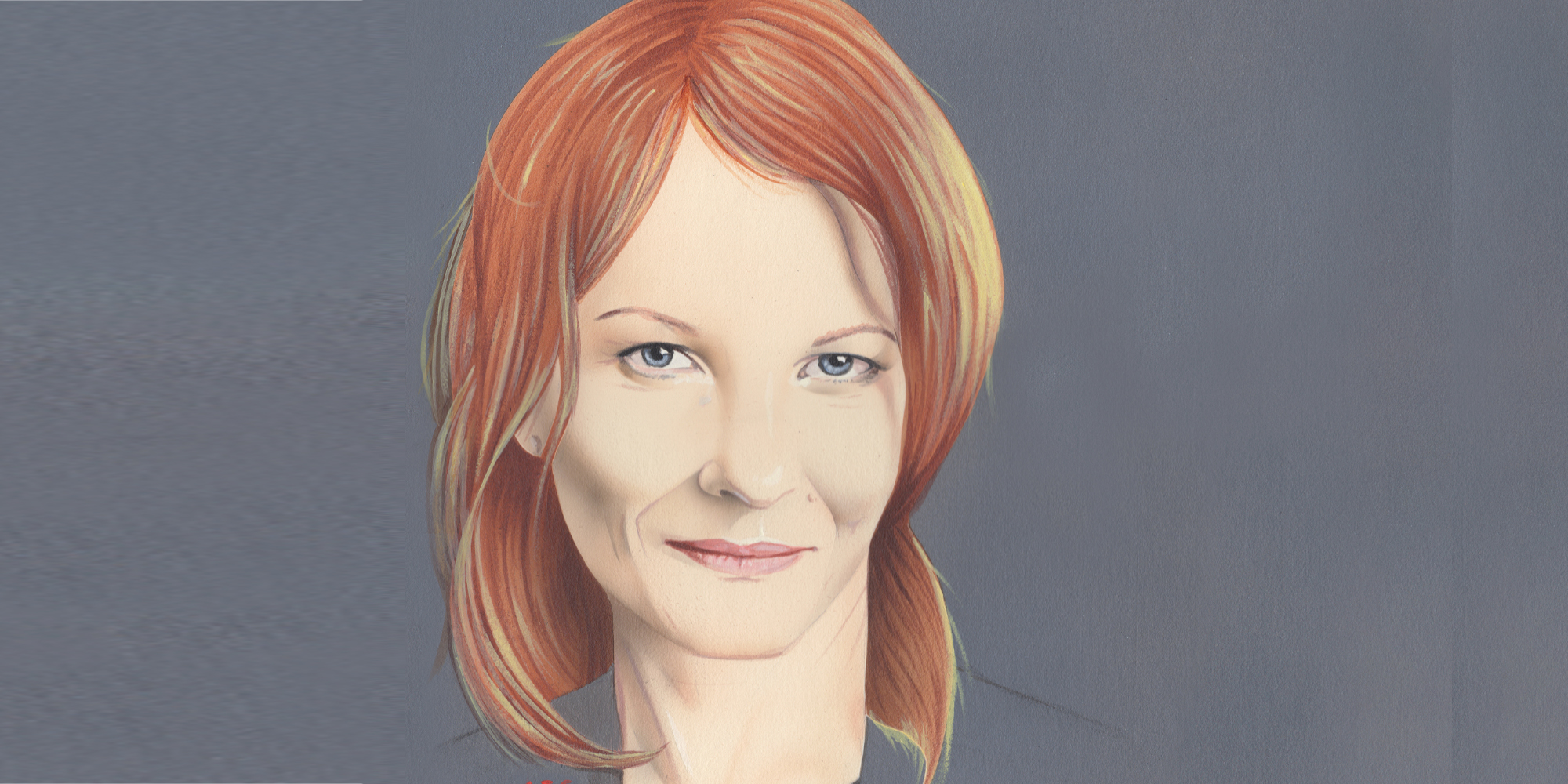
(Illustration by Arthur E. Giron)
Questions for the political commentator, podcaster, and 2014 Institute of Politics fellow.
What surprising job have you had in the past?
During a dry spell between dot-com booms, I was an assistant to a private investigator. I’ve also been a security guard and done phone polling for Gallup.
What would you want to be doing if not your current profession?
If we’re in the realm of fantasy, where my alternate profession is also guaranteed to be successful: interior design.
What do you hate that everyone else loves?
A lot of your more aggressively testosterone-driven “classic” movies: Raging Bull, Saving Private Ryan, The Deer Hunter. I’d honestly just as soon rewatch Bridget Jones.
What do you love that everyone else hates?
Mass-market chain-store pizza: Domino’s, Pizza Hut, etc. It’s comfort food from a childhood spent in college towns.
What was the last book you finished?
A terrible evangelical quasi-apocalyptic techno-thriller I will not name. Read it for work, suffered for it. Last book I read for fun: Woken Furies by Richard K. Morgan.
What was the last book you recommended to a friend?
Richard K. Morgan’s Altered Carbon series that Woken Furies is a part of, actually.
What was the last book you put down before you finished it?
A Case of Conscience by James Blish.
What book changed your life?
The Lion, the Witch, and the Wardrobe.
What person, alive or dead, would you want to write your life story?
Curtis Sittenfeld.
What’s your least useful talent?
Extraordinarily good handwriting.
Tell us the best piece of advice you’ve received—or the worst.
Never make a job decision based on how much you’ll make—money won’t make up for a bad work environment, but a great work experience will make up for not making as much money.
What advice would you give to a brand-new Maroon?
Unless you’re going to grad school, there is no difference between an A and a B, and not much difference between an A and a C. Don’t put pressure on yourself to get a perfect grade—focus on getting the most you can out of the material and the incredible instructors you have access to. Take a class in something you don’t have a natural ability for (science if you’re a humanities person, literature if you’re a science type): you will never have another chance to sample as wide an array of experts as you do at U of C.
What did you learn at UChicago that still benefits you today?
It may be a cliché, but UChicago taught me how to think and drilled into me the value of understanding why things are the way they are over knowing specific bits of data. As a journalist, knowing how to find information is a much more important skill than mastering any particular field, and I learned that at UChicago.
What’s your most vivid UChicago memory?
Sitting in Harper Library on election night in 1992, studying American Civ while also listening (very quietly) to my Walkman (!) when Carol Moseley Braun [JD’72] became the first black woman elected to the Senate. I had this quiet sense of the whole flow of history and felt exhilarated by the possibilities.
